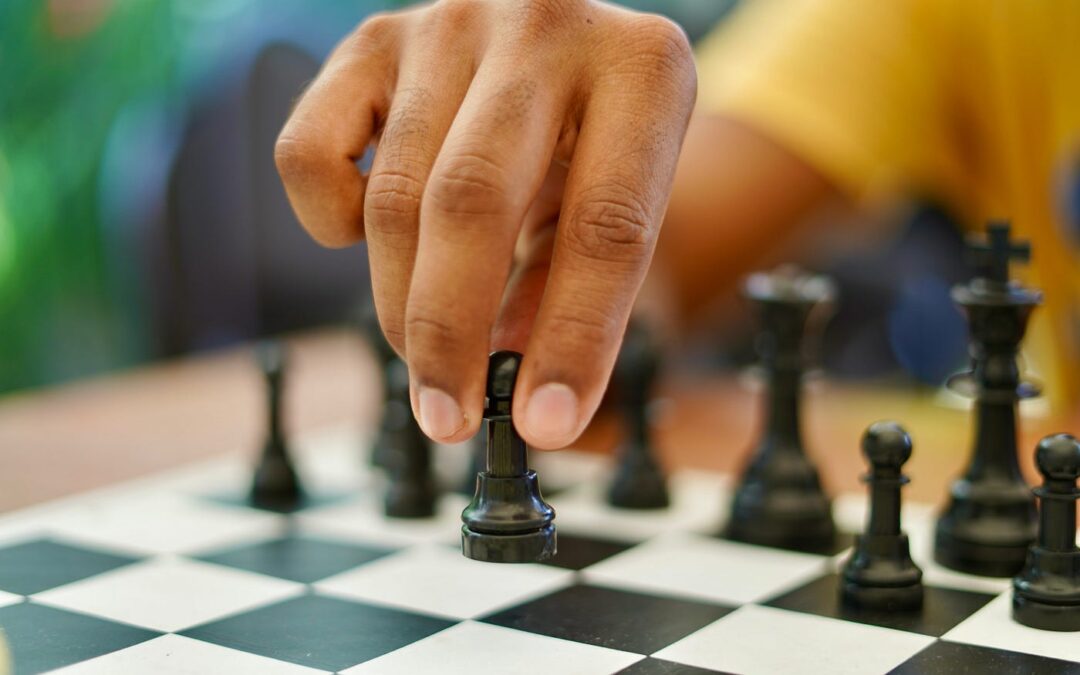In competitive games—whether chess, sports, or video games—understanding your opponent’s strategies can often be the deciding factor between winning and losing. It’s not just about mastering your own moves, but about anticipating and countering what your opponent will do next. This skill, while developed over time, can give you a significant advantage in any game. In this article, we’ll explore how to analyze your opponent’s tactics, recognize patterns, and use that insight to stay ahead in competitive play.
Why Understanding Opponent Strategies is Important:
In any competitive environment, success often depends on the ability to outsmart your opponent. Whether you’re facing off in a chess match, a soccer game, or an online strategy game, predicting and responding to your opponent’s moves can help you gain the upper hand. By learning to identify their strategies, you can make informed decisions that keep you one step ahead, ultimately improving your chances of victory.
For instance, in chess, understanding common opening strategies allows you to counteract your opponent’s planned moves. Similarly, in sports like basketball, knowing your opponent’s typical playstyle or defensive tendencies can help you create opportunities on the court.
Key Tips for Developing Insight:
1. Observe and Analyze:
The first step to understanding your opponent’s strategies is keen observation. Watch for patterns in their play—do they tend to favour certain moves or tactics? In chess, this could mean recognising a particular opening or sequence of moves they favor. In basketball, it might be noticing whether they prefer a fast-paced or defensive style. Keeping track of these habits will help you predict their next move, allowing you to plan your response.
2. Think Ahead:
One of the most crucial aspects of competitive play is the ability to think several steps ahead. Anticipating what your opponent will do based on their current moves or behavior is essential. In chess, this means predicting the outcome of your moves several turns down the line. In sports, it could involve reading the game as it unfolds, understanding how the opponent is likely to react under different scenarios. This foresight allows you to make strategic decisions that shape the course of the game.
Also read, Mastering the Opening: Strategies to Start Strong in Chess
3. Learn from Mistakes:
Every game, win or lose, provides valuable lessons. After each match, take the time to reflect on what happened. Did your opponent’s strategy catch you off guard? Did you miss any signs or signals during the game? Learning from these moments and analysing your opponent’s tactics after the fact will make you more prepared for future encounters. In chess, players often review their games to understand how their opponent gained the upper hand, which helps in future matchups.
4. Study Different Strategies
Familiarising yourself with a variety of strategies is a key part of recognising what your opponent might do. This could involve studying other players, watching professional matches, or reading up on common strategies in your chess game. In chess, opening theory is a classic example, where players study the moves of grandmasters to gain insight into advanced play. Similarly, in sports, watching game footage from top-level players can provide invaluable insights into the strategies your opponent may use.

5. Stay Calm Under Pressure:
Competitive play can often come with high levels of stress, which can cloud your judgment. However, maintaining a calm and focused mindset is crucial. When you’re under pressure, it’s easy to rush your decisions, but this is when a clear head is most valuable. By staying calm, you can more effectively analyse your opponent’s strategy and adjust accordingly, whether you’re playing a fast-paced video game or in the final minutes of a soccer match.
Also read, Protecting the King: Essential Tips for Stronger Defense🏰🛡️
6. Adapt and Evolve:
Flexibility in your approach is key. If you notice that your opponent is responding well to a particular tactic, switch things up. The best players can adapt to their opponent’s playstyle in real time. In chess, if your opponent is playing aggressively, consider adopting a defensive approach until you can capitalize on their overextension. In sports, changing your positioning or switching strategies can throw off your opponent and force them to adjust to your game.
Conclusion:
Mastering the ability to understand and anticipate your opponent’s strategies is essential to becoming a better player in any competitive environment. By observing their moves, thinking ahead, learning from mistakes, studying various strategies, staying calm under pressure, and adapting in real time, you can increase your chances of success. Developing these skills takes practice, but the payoff is worth it—whether you’re playing a game of chess, a sport, or engaging in an online match, having the upper hand over your opponent’s strategy can give you a decisive advantage.
Keep honing your skills and reflecting on each game you play. Analyze your opponent’s tactics and identify areas where you can improve your strategic thinking. Whether it’s chess, basketball, or any other competitive game, practicing these techniques will elevate your performance and help you stay one step ahead of the competition.
Premier Chess Academy for fun and engaging chess lessons. Our programs are designed to help young learners grow their skills and confidence! 


Recent Comments